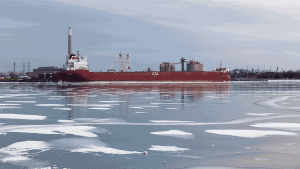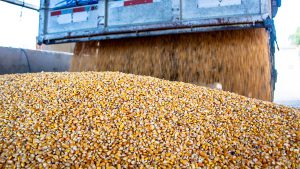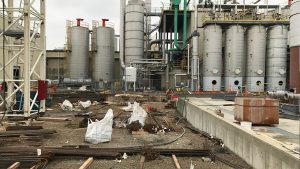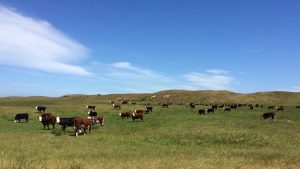Political change
FROM THE CEO'S DESK

WITH THE LAST election in Ontario almost four years ago, it’s hard to believe that in the short time since, the Canadian government, the U.S. government, and many of the provincial governments across Canada have seen significant change in their political leaders and policy directions. There is no doubt that in this new disruptive political environment we now live in, it’s very likely to have an impact on the voting public in the Ontario election this June. But no one, not even pollsters (as we have seen time after time) are in a position to predict who will form Ontario’s next government.
While we all have our own opinion and biases about who should form government next, I thought it’s a good time to examine the parties’ commitments to our industry’s priorities given the release of the Ontario PC party’s policy document, which they are calling ‘The People’s Guarantee’, and the fact that we are in the final months of the current government’s mandate.
Despite a rocky start with Kathleen Wynne’s Liberal government over science and pesticide regulations, Grain Farmers of Ontario has been working on developing opportunities to work in partnership with politicians at Queen’s Park, OMAFRA, and other government ministries towards initiatives that are good for grain and oilseed farmers.
It looks as if we’ve achieved proposed regulations to double the ethanol mandate; saved the RMP program for another year; dodged the removal of the coloured diesel tax exemption; and garnered provincial support in trade negotiations. The agriculture section of the Domestic Action Plan for reducing the impact of phosphorus in Lake Erie was a collaborative effort between government and commodity leaders, including Grain Farmers of Ontario. And the “ask” for comprehensive reform for the federal Business Risk Management (BRM) suite by the AgGrowth coalition (which we helped form with other farm groups nationally) was championed by Ontario’s Minister of Agriculture at the Federal-Provincial-Territorial table this summer.
But these last four years have not been without challenges. Farmers, alongside the rest of Ontarians, have seen price hikes in fuel and other energy costs due to the Ontario government’s Cap and Trade regulations, which have also led to higher input prices for farmers. We all know about hydro rates and what happened there. So far, it’s not known how agriculture will benefit from the Cap and Trade system even though we are a major carbon sink for the province.
Patrick Brown’s Peoples Guarantee makes a lot of promises, including some that address these issues — dismantling the Cap and Trade system and opting for a Carbon Tax instead, and keeping hydro costs down.
We were pleased to see Brown’s policy document also includes two areas Grain Farmers of Ontario has been asking for — an increase to the underfunded BRM programming by $50 million and the establishment of an agriculture task force that we would like to see be the drivers for growth in the agriculture sector.
Over the next few months, the leadership of Grain Farmers of Ontario will continue to talk with political parties and candidates about ideas that we think will result in growth for our grain and oilseed farmers. The Board of Directors has determined two main ideas we need the next government to focus on for our farmer-members:
• The establishment of a made-in-Ontario economic advisory growth table for grains and oilseeds that can help shape the right policy environment to achieve growth.
• A federal/provincial policy that establishes a flexible suite of BRM programs that address the risks faced by today’s modern farmers.
Over the next few months, your local candidates will be knocking on doors, holding events, and asking for your vote. When they do, I hope you ask them about their position on the agricultural issues that are important to you. Further to that, ask them how they will make sure the future of Ontario will take advantage of the growth potential that grain and oilseed farmers can provide. Make sure you use this opportunity in the lead up to the election. •





















